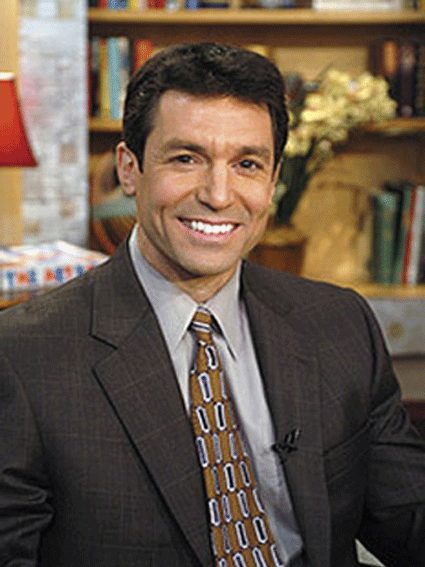
Diet and Health

When the Pandemic Came to our House
On June 11, the World Health Organization proclaimed a flu pandemic -- level 6 -- recognizing what we already knew: People around the world are spreading influenza.
Let me speak from personal experience about level 6. I am just over a bout of this flu.
About two weeks ago, two of my daughters developed, in rapid succession, what appeared to be a cold -- coughing and sneezing. Neither had fever; both had minor aches and pains. One missed a day of school. Then my wife developed, and quickly recovered from, similar but even milder symptoms.
Then my 10-year-old son developed a more impressive version and spiked a fever of over 102 degrees Fahrenheit. That suggested flu, not at all obvious until then. My wife took our son to the pediatrician, where a culture revealed influenza A -- a strain of which is A(H1N1).
I developed symptoms a few days after my son. I never had a fever, but the body aches were significant, along with cough and headache. The condition ran its course in less than a week.
 |
By: Dr. David L. Katz* |
The WHO system is about the spread of an outbreak, not its severity. Though only one person in my family was cultured for flu, I believe five of us had it -- very mild, mostly impressive for being unimpressive, which may be reassuring.
Another reassurance: Many people are getting this flu without knowing it. If my son hadn’t developed a fever, we never would have learned about my wife and daughters, which suggests that there are many more cases of this bug than the WHO tally indicates.
Deaths from A(H1N1) flu, while tragic, occur in a vanishingly small proportion of cases -- less than one-tenth of 1 percent, by the official tally. The threat may be even less, given the innumerable cases like the one that rolled through our household.
However, we still must respect this flu. Prior flu pandemics -- most notoriously in 1918 -- occurred in waves, with a mild version followed by a serious one. History warns against complacency.
What to do? First, get your flu shot for next season. Novartis has just announced a prototype H1N1 vaccine. Before a second wave comes, we will have a vaccine.
That won’t help if we don’t use it. In recent years, an array of anxieties and conspiracy theories has clung like lint to the once-revered practice of immunization. While any vaccine can do harm, I state bluntly: Immunization is among the safest, most effective medical advances. Fretting about vaccines is the luxury of a society no longer obligated to endure the scourges that vaccines prevent -- from smallpox to measles to polio. Remember, too, that this flu hits hardest among people who are obese, or afflicted with a chronic disease or any condition with a heightened immune response. You can’t control all risk factors, but you can do a lot to withstand the flu if a meaner version comes along.
If you smoke, stop. If you don’t eat fruits and vegetables, start. (Also, you should eat fish and flaxseed, or take a supplement, to boost your Omega-3 fats.) If you aren’t physically active, get moving. If you don’t sleep enough, try.
As a society, we seem resigned to an inevitable yearly flu outbreak and an occasional pandemic. The root cause -- as explored in the Pulitzer-prize winning book “Guns, Germs, and Steel,” by Jared Diamond -- is animal husbandry. Swine flu results from populations of people in proximity, with human and porcine flu strains mingling. The same goes for avian flu. If we ate a more plant-based diet, and raised and ate fewer feed animals, there would be less of the inter-species viral fraternizing that underlies pandemic flu.
In flu, as in so many health matters, what’s eating us is tangled up with what we’re eating. That insight doesn’t offer the immediate benefits of vaccination, but it is longer-term food for thought.
and Director of the Prevention Research Center at the Yale University School of Medicine.
He is and Editorial Advisor to Prevention Magazine, Columnist for O, the Oprah Magazine,
and a Medical Consultant to ABC News. He may be reached at www.davidkatzmd.com.